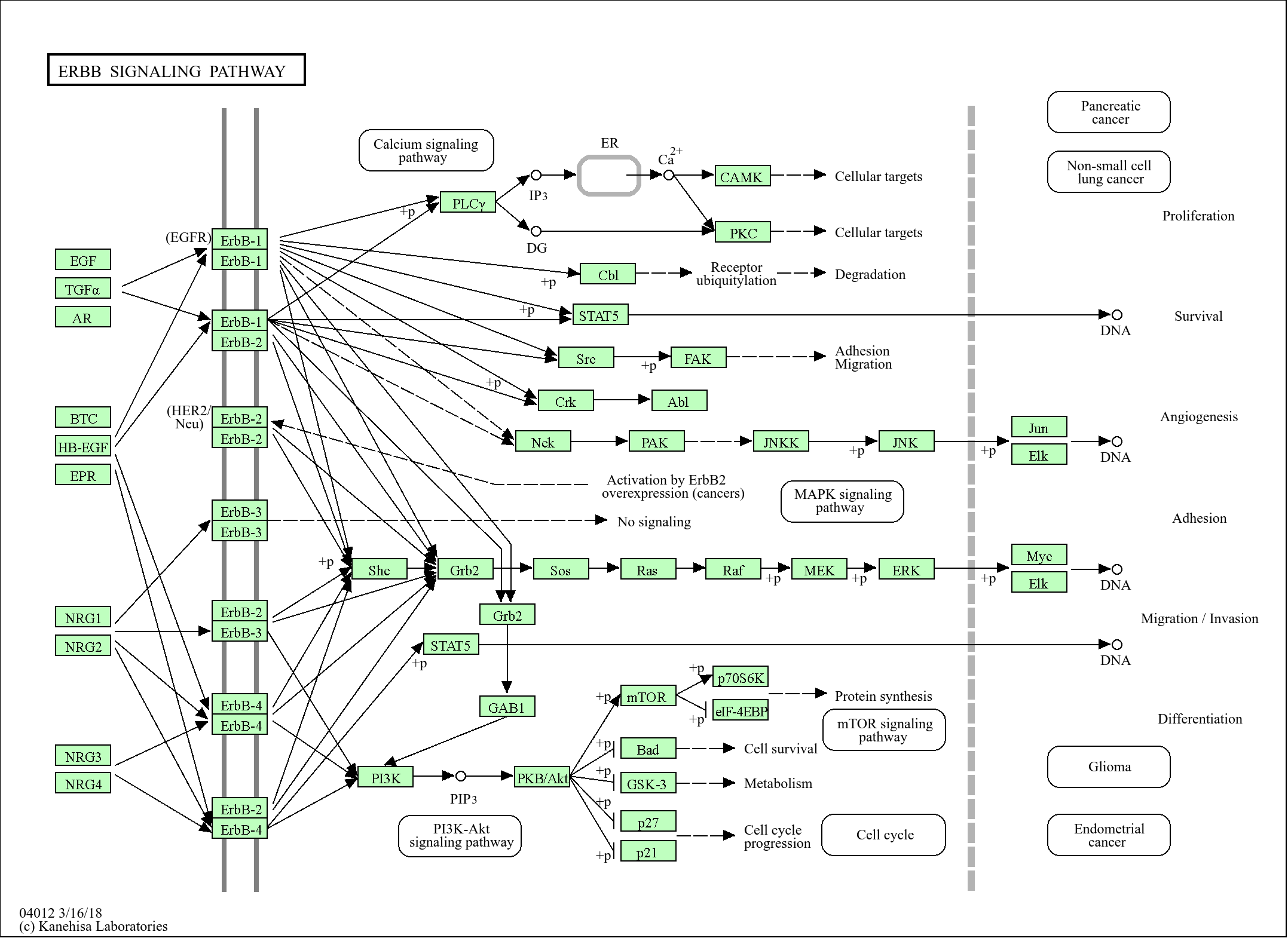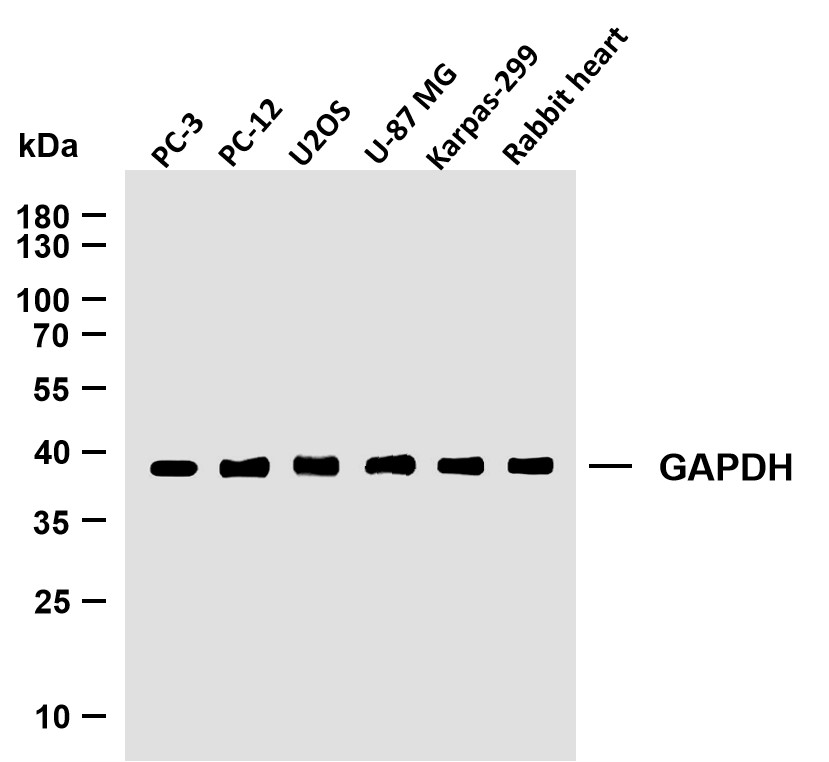
主要信息
Target
Kininogen 1
Host Species
Rabbit
Reactivity
Human, Mouse, Rat
Applications
WB, ELISA
MW
41kD (Observed)
Conjugate/Modification
Unmodified
货号: YC0096
规格
价格
货期
数量
200μL
¥3,780.00
现货
0
100μL
¥2,300.00
现货
0
40μL
¥960.00
现货
0
加入购物车


已收藏


收藏
详细信息
推荐稀释比
WB 1:500-1:2000; ELISA 1:10000; Not yet tested in other applications.
组成
Liquid in PBS containing 50% glycerol, 0.5% BSA and 0.02% sodium azide.
特异性
Cleaved-Kininogen-1 HC (K380) Polyclonal Antibody detects endogenous levels of fragment of activated Kininogen-1 HC protein resulting from cleavage adjacent to K380.
纯化工艺
The antibody was affinity-purified from rabbit antiserum by affinity-chromatography using epitope-specific immunogen.
储存
-15°C to -25°C/1 year(Do not lower than -25°C)
浓度
1 mg/ml
实测条带
41kD
修饰
Unmodified
克隆性
Polyclonal
同种型
IgG
相关产品
抗原&靶点信息
免疫原:
Synthesized peptide derived from Cleaved-Kininogen-1 HC (K380) . at AA range: 300-380
展开内容
特异性:
Cleaved-Kininogen-1 HC (K380) Polyclonal Antibody detects endogenous levels of fragment of activated Kininogen-1 HC protein resulting from cleavage adjacent to K380.
展开内容
基因名称:
KNG1 BDK KNG
展开内容
蛋白名称:
Kininogen-1
展开内容
别名:
KNG1 ;
BDK ;
KNG ;
Kininogen-1 ;
Alpha-2-thiol proteinase inhibitor ;
Fitzgerald factor ;
High molecular weight kininogen ;
HMWK ;
Williams-Fitzgerald-Flaujeac factor
BDK ;
KNG ;
Kininogen-1 ;
Alpha-2-thiol proteinase inhibitor ;
Fitzgerald factor ;
High molecular weight kininogen ;
HMWK ;
Williams-Fitzgerald-Flaujeac factor
展开内容
背景:
This gene uses alternative splicing to generate two different proteins- high molecular weight kininogen (HMWK) and low molecular weight kininogen (LMWK). HMWK is essential for blood coagulation and assembly of the kallikrein-kinin system. Also, bradykinin, a peptide causing numerous physiological effects, is released from HMWK. Bradykinin also functions as an antimicrobial peptide with antibacterial and antifungal activity. In contrast to HMWK, LMWK is not involved in blood coagulation. Three transcript variants encoding different isoforms have been found for this gene.[provided by RefSeq, Nov 2014],
展开内容
功能:
Disease:Defects in KNG1 are the cause of high molecular weight kininogen deficiency (HMWK deficiency) [MIM:228960]. HMWK deficiency is an autosomal recessive coagulation defect. Patients with HWMK deficiency do not have a hemorrhagic tendency, but they exhibit abnormal surface-mediated activation of fibrinolysis.,Function:(1) Kininogens are inhibitors of thiol proteases; (2) HMW-kininogen plays an important role in blood coagulation by helping to position optimally prekallikrein and factor XI next to factor XII; (3) HMW-kininogen inhibits the thrombin- and plasmin-induced aggregation of thrombocytes; (4) the active peptide bradykinin that is released from HMW-kininogen shows a variety of physiological effects: (4A) influence in smooth muscle contraction, (4B) induction of hypotension, (4C) natriuresis and diuresis, (4D) decrease in blood glucose level, (4E) it is a mediator of inflammation and causes (4E1) increase in vascular permeability, (4E2) stimulation of nociceptors (4E3) release of other mediators of inflammation (e.g. prostaglandins), (4F) it has a cardioprotective effect (directly via bradykinin action, indirectly via endothelium-derived relaxing factor action); (5) LMW-kininogen inhibits the aggregation of thrombocytes; (6) LMW-kininogen is in contrast to HMW-kininogen not involved in blood clotting.,online information:High molecular weight kininogen entry,polymorphism:The T-kinin peptide is missing residues 378 to 380, probably as a result of a naturally occurring variant. The complete sequence of the T-kinin peptide is therefore ISRPPGFSPFR. This peptide is associated with malignant tumors but not with benign ones.,PTM:Bradykinin is released from kininogen by plasma kallikrein.,PTM:Hydroxylation of Pro-383 occurs prior to the release of bradykinin.,similarity:Contains 3 cystatin domains.,tissue specificity:Plasma. T-kinin is detected in malignant ovarian, colon and breast carcinomas, but not in benign tumors.,
展开内容
细胞定位:
Secreted, extracellular space.
展开内容
研究领域:
>>cGMP-PKG signaling pathway ;
>>Sphingolipid signaling pathway ;
>>Neuroactive ligand-receptor interaction ;
>>Complement and coagulation cascades ;
>>Inflammatory mediator regulation of TRP channels ;
>>Regulation of actin cytoskeleton ;
>>Chagas disease ;
>>African trypanosomiasis ;
>>Pathways in cancer
>>Sphingolipid signaling pathway ;
>>Neuroactive ligand-receptor interaction ;
>>Complement and coagulation cascades ;
>>Inflammatory mediator regulation of TRP channels ;
>>Regulation of actin cytoskeleton ;
>>Chagas disease ;
>>African trypanosomiasis ;
>>Pathways in cancer
展开内容
信号通路
Cellular Processes >> Cell motility >> Regulation of actin cytoskeleton
Organismal Systems >> Immune system >> Complement and coagulation cascades
Organismal Systems >> Sensory system >> Inflammatory mediator regulation of TRP channels
Human Diseases >> Cancer: overview >> Pathways in cancer
Environmental Information Processing >> Signal transduction >> Sphingolipid signaling pathway
Environmental Information Processing >> Signal transduction >> cGMP-PKG signaling pathway
文献引用({{totalcount}})
货号: YC0096
规格
价格
货期
数量
200μL
¥3,780.00
现货
0
100μL
¥2,300.00
现货
0
40μL
¥960.00
现货
0
加入购物车


已收藏


收藏
Recently Viewed Products
Clear allToggle night Mode
{{pinfoXq.title || ''}}
Catalog: {{pinfoXq.catalog || ''}}
Filter:
All
{{item.name}}
{{pinfo.title}}
-{{pinfo.catalog}}
主要信息
Target
{{pinfo.target}}
Reactivity
{{pinfo.react}}
Applications
{{pinfo.applicat}}
Conjugate/Modification
{{pinfo.coupling}}/{{pinfo.modific}}
MW (kDa)
{{pinfo.mwcalc}}
Host Species
{{pinfo.hostspec}}
Isotype
{{pinfo.isotype}}
产品 {{index}}/{{pcount}}
上一个产品
下一个产品
{{pvTitle}}
滚轮缩放图片
{{pvDescr}}




















